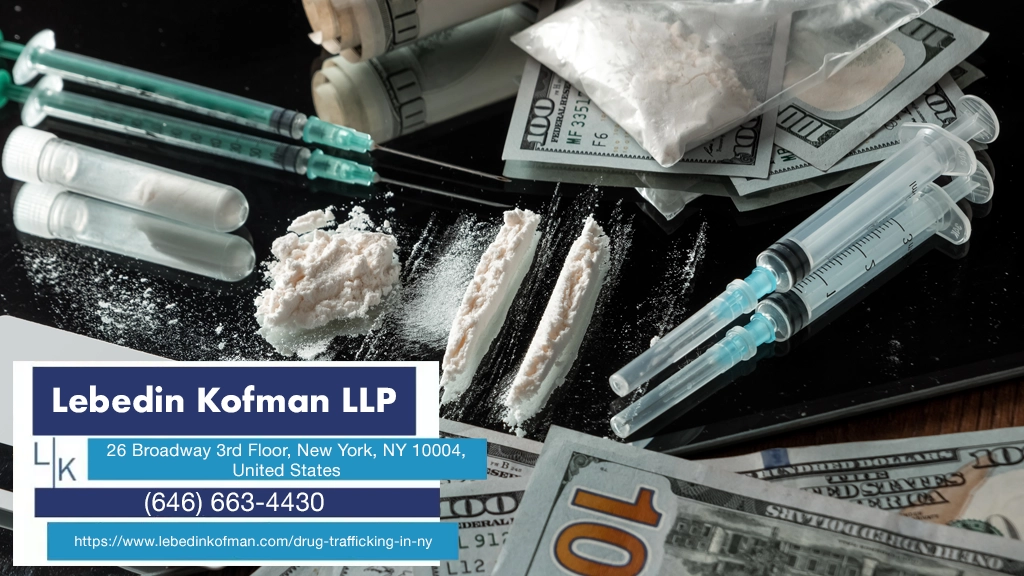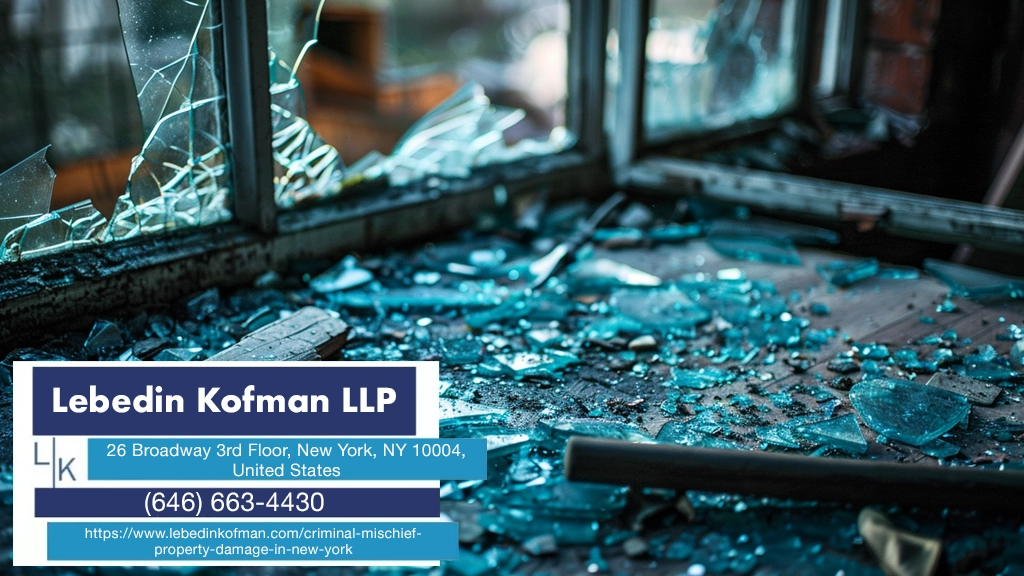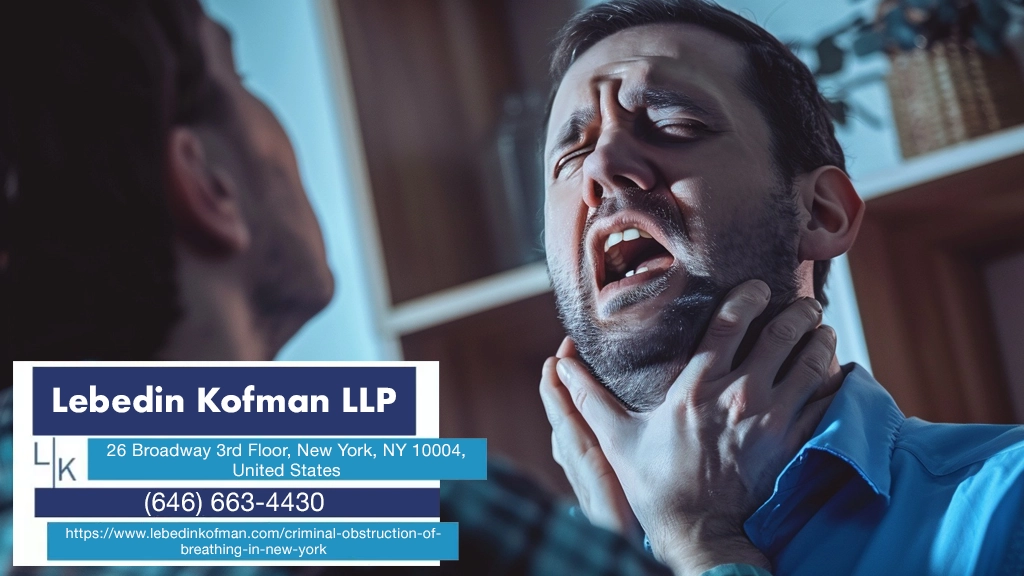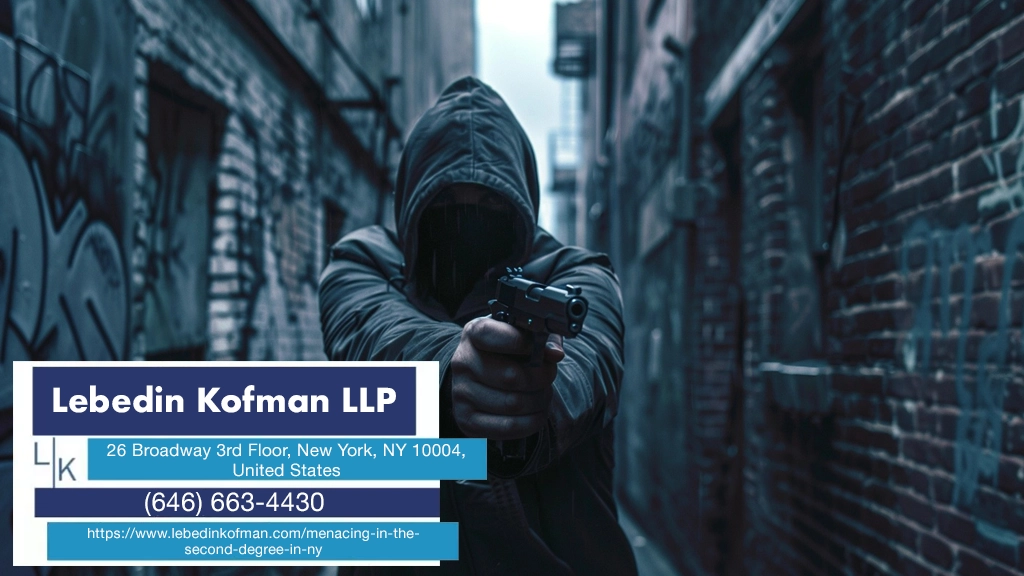As a criminal defense attorney practicing in New York, I’ve witnessed some pretty dramatic shifts in how domestic violence cases are handled over the past few years. The legal landscape has been transformed by new legislation, evolving judicial interpretations, and a deeper understanding of abuse dynamics that goes far beyond the traditional “he said, she said” scenarios we used to see.
If you’re facing domestic violence charges or you’re an attorney looking to understand these changes, buckle up. The rules of the game have changed significantly, and what worked five years ago might not fly today. Seeking legal guidance from a skilled New York domestic violence lawyer at Lebedin Kofman LLP can help you address this challenging situation. Our experienced team is ready to protect your rights and safeguard your future. We can guide you through the legal process and handle your defense with care. Contact us today at (646) 663-4430 to discuss your case.
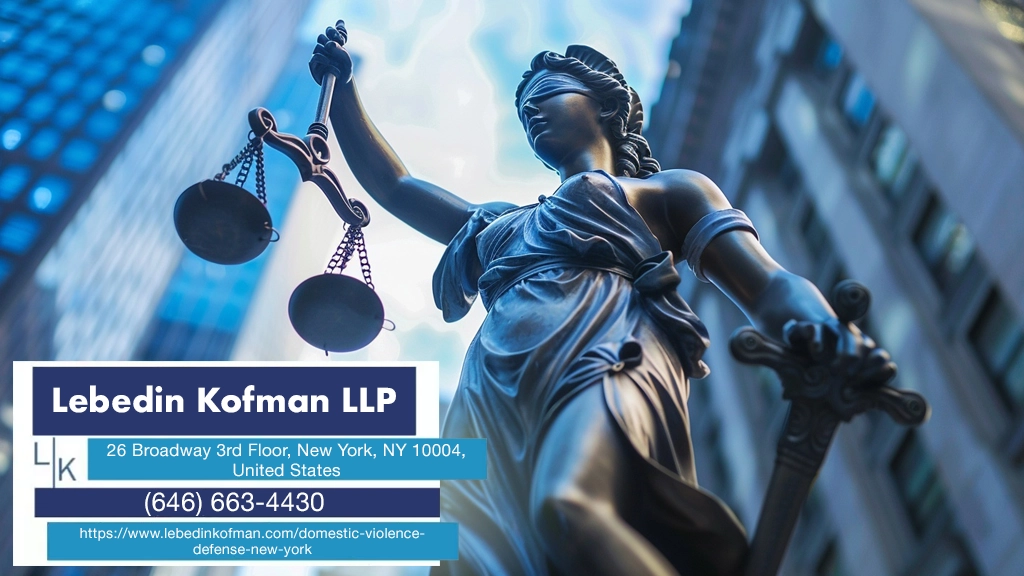
Major Discovery Law Reforms: The Game Changer
Let me start with the elephant in the room: the discovery law reforms that took effect on August 7, 2025. These changes represent the most significant shift in domestic violence defense strategy I’ve seen in my career.
Here’s the backstory that’ll make your head spin. After New York’s 2019 discovery reforms were implemented, dismissals in domestic violence cases shot up 26 percent in New York City. By 2023, we were seeing approximately 94 percent of domestic violence cases dismissed in NYC, while nearly 50 percent were dismissed outside the city. That’s a massive swing from the pre-2019 conviction rate of 31 percent, which dropped to just 6 percent.
Governor Hochul called this a “fatal flaw” in the system, and frankly, she wasn’t wrong. Cases were getting tossed over minor technicalities while serious allegations went unresolved.
What Changed for Defense Attorneys
The new reforms implement several crucial changes that every defense attorney needs to understand:
Holistic Evaluation Standard: Courts now must consider the prosecutor’s efforts as a whole and determine whether any missing material actually prejudiced the defense. No more automatic dismissals over insignificant paperwork mistakes.
Narrowed Disclosure Requirements: The scope of required disclosure has been tightened, eliminating fishing expeditions for materials irrelevant to the actual charges.
Good Faith Standard: Prosecutors can move cases forward after exercising good faith and due diligence to obtain discoverable material, even if some items remain pending.
Early Challenge Requirements: Defense attorneys must bring discovery challenges early and confer with prosecutors to resolve issues quickly. No more gaming the speedy trial clock.
These changes mean we need to be more strategic about discovery challenges. The days of automatic wins on technical violations are largely over.
The Clean Slate Act: New Hope for Long-Term Consequences
Starting November 16, 2024, New York’s Clean Slate Act began automatically sealing criminal records for domestic violence convictions. This is huge for client counseling and plea negotiations.
Under the Act:
- Misdemeanor domestic violence convictions are sealed after three years
- Felony convictions require an eight-year waiting period
This changes the conversation I have with clients about the long-term impact of a conviction. While a domestic violence conviction still carries immediate consequences, the permanent scarlet letter effect is significantly reduced for clients who can stay out of trouble post-conviction.
Keep in mind that certain crimes remain excluded: Class A felonies (except drug-related offenses), sex crimes, federal crimes, and out-of-state convictions don’t qualify for automatic sealing.
Coercive Control: Beyond Physical Violence
New York is gradually recognizing coercive control as a distinct form of domestic violence, and this shift is reshaping how we approach defense strategies. While not yet a standalone crime, pending legislation like Senate Bill S4079 (2025) seeks to establish coercive control as a specific criminal offense.
Coercive control encompasses patterns of behavior designed to establish power and control, including:
- Financial control and withholding money
- Isolation from family and friends
- Constant surveillance and monitoring
- Verbal degradation and psychological manipulation
- Control over daily activities and basic needs
This concept has already been incorporated into the 2019 Domestic Violence Survivors Justice Act (DVSJA), which permits consideration of psychological abuse in sentencing decisions.
For defense attorneys, understanding coercive control dynamics is essential, especially when representing clients who may themselves be victims of abuse. I’ve seen cases where mutual combat or self-defense claims become much clearer when viewed through this lens.
Technology-Enabled Abuse: The New Frontier
Modern domestic violence cases increasingly involve technology-facilitated abuse, and New York’s cyberstalking and digital harassment laws are evolving to keep pace.
Current statutes address various forms of technological abuse:
Stalking in the Fourth Degree (§ 120.45) criminalizes using electronic devices to monitor or harass someone, including GPS tracking, social media surveillance, and unwanted digital contact.
Aggravated Harassment in the Second Degree (§ 240.30) covers electronic communications intended to harass, threaten, or alarm, including text messages, emails, and social media posts.
Defense strategies in these cases often involve challenging the intent element, examining whether digital communications were truly voluntary, and exploring issues of consent and authorization for monitoring activities. I’ve successfully defended cases where clients had legitimate access to shared accounts or devices, making the “unauthorized” element difficult to prove.
The key is understanding the technology involved. If you don’t know the difference between location sharing and GPS stalking, or between authorized account access and hacking, you’re going to struggle with these cases.
The Domestic Violence Survivors Justice Act in Practice
The DVSJA has been a game-changer for clients with histories of abuse. This Act allows judges to consider domestic violence history when a defendant was themselves a victim of substantial abuse that significantly contributed to their criminal conduct.
Key DVSJA Requirements:
- Documented abuse at the time of the offense
- Abuse as a significant contributing factor to the criminal conduct
- Physical, sexual, or psychological abuse by a family or household member
I’ve seen remarkable results with DVSJA applications. In September 2024, a sex trafficking survivor was released after serving nine years of a 25-year sentence, with her resentencing under DVSJA wiping out more than 15 years remaining on her original sentence.
But here’s the reality check: implementing DVSJA applications requires extensive preparation. We’re talking months of work, thorough investigation of historical records, medical documentation, and witness testimony. It’s not a quick fix, but when done right, it can be life-changing for clients.
Expanded Protection Order Eligibility: Melanie’s Law
Governor Hochul signed “Melanie’s Law” on November 25, 2024, significantly expanding eligibility for orders of protection. Previously, protection orders were limited to direct victims and children under 18. The new law extends protection to all family and household members regardless of age.
This expansion affects defense practice by potentially increasing the scope of individuals protected under orders of protection and creating additional avenues for violation charges. I now spend more time with clients reviewing exactly who’s covered under their protection orders and what activities might constitute violations.
The broader reach means more potential pitfalls for clients, especially in complex family situations where multiple relatives might be involved.
Restorative Justice: An Alternative Path
New York City has begun exploring restorative justice approaches to intimate partner violence as alternatives to traditional criminal prosecution. These programs focus on:
- Community-based healing processes
- Survivor-centered accountability measures
- Addressing root causes of violence
- Supporting family system healing
The NYC Domestic Violence Task Force released a comprehensive blueprint for implementing restorative approaches, emphasizing survivor safety and community engagement. While these programs don’t replace the need for criminal defense, they may provide alternative pathways for some cases.
I’ve started incorporating discussions about restorative justice options into my client consultations, particularly for first-time offenders or cases involving complex family dynamics.
Self-Defense and Justification: Still Critical
New York’s self-defense laws remain essential for domestic violence defense, particularly given the state’s duty to retreat requirement. The key principles include:
Reasonable Belief Standard: Defendants must demonstrate reasonable belief of imminent danger of unlawful touching, injury, or death.
Proportionality Requirement: Force used must be proportional to the threat faced, with deadly force justified only when facing potential serious bodily harm or death.
Castle Doctrine Exception: The duty to retreat doesn’t apply in one’s home, where reasonable force, including deadly force, may be used against intruders.
Bail Reform and Pretrial Detention
New York’s bail reform laws maintain special provisions for domestic violence cases, allowing judges to set bail in specific circumstances even for misdemeanors and non-violent felonies:
- Criminal contempt cases involving domestic violence and order of protection violations
- Sex offense misdemeanors and non-violent felonies
- Witness tampering or intimidation cases
Electronic monitoring remains available for domestic violence misdemeanors, providing an additional supervision tool for courts concerned about victim safety.
What this means practically is that domestic violence cases often don’t benefit from the broader bail reform protections we see in other areas. Judges still have significant discretion to detain clients or impose restrictive conditions, so bail applications require careful preparation and strong alternative supervision plans.
Implications for Modern Defense Practice
These evolving legal landscapes require us to adapt our practice in several key areas that I’ve learned through experience:
Comprehensive Case Evaluation from Day One
The interplay between discovery reforms, expanded protection orders, and technology-enhanced evidence requires thorough case assessment from the moment a client walks through your door. I now spend significantly more time in initial consultations exploring the full scope of allegations, technology involved, and potential family members who might be affected by protection orders.
You can’t just focus on the immediate charges anymore. The ripple effects are broader and more complex than they used to be.
Enhanced Client Counseling
Clients need to understand the long-term implications of Clean Slate Act provisions, expanded protection order eligibility, and potential DVSJA applications if they have abuse histories. I’ve developed a more comprehensive counseling process that addresses both immediate consequences and long-term implications.
The conversation about plea negotiations has become more nuanced. A conviction that would have been devastating five years ago might have different implications under the Clean Slate Act, but clients need to understand the waiting periods and requirements for maintaining clean records.
Strategic Use of Expert Witnesses
The growing recognition of coercive control and trauma-informed approaches often requires expert witnesses to explain abuse dynamics, psychological impacts, and behavioral responses to trauma. I’ve built relationships with psychologists, social workers, and domestic violence experts who can help juries understand complex relationship dynamics.
These experts aren’t just helpful for DVSJA applications. They’re increasingly important for explaining why clients might have stayed in abusive relationships, why they might not have reported abuse, or why their behavior might seem inconsistent with traditional victim narratives.
Technology Literacy is Non-Negotiable
Defending against cyberstalking and technology-facilitated abuse charges requires understanding digital evidence, privacy laws, and technological capabilities for monitoring and harassment. I’ve had to educate myself on everything from social media privacy settings to GPS tracking capabilities to encrypted messaging apps.
If you don’t understand the technology, you can’t effectively challenge the evidence or cross-examine witnesses about digital forensics. This isn’t optional anymore.
Looking Ahead: What Defense Attorneys Need to Know
The domestic violence defense field continues evolving rapidly. Legislative reforms, judicial interpretations, and deeper understanding of abuse dynamics are reshaping how these cases are prosecuted and defended.
The recent discovery law reforms represent the most significant procedural change in recent years, fundamentally altering how domestic violence cases move through the courts. Combined with expanded recognition of coercive control, technology-enabled abuse, and trauma-informed approaches, these changes create both challenges and opportunities.
Practical Takeaways for Defense Practice
Stay Current: The law is changing faster than ever. What worked last year might not work today. Regular continuing education isn’t just recommended; it’s essential for effective representation.
Build Your Network: Develop relationships with experts in psychology, technology, and domestic violence dynamics. You’ll need them more often than you think.
Invest in Technology: Understanding digital evidence and electronic communications is no longer a specialty practice area. It’s basic competency.
Think Long-Term: Client counseling must address both immediate consequences and long-term implications under evolving laws like the Clean Slate Act and potential DVSJA applications.
Prepare Thoroughly: The days of quick plea negotiations based on standard discovery violations are largely over. These cases require comprehensive preparation and strategic thinking.
The system continues balancing victim protection with defendant rights, and effective defense practice must incorporate these evolving standards while ensuring constitutional protections remain intact. The stakes are high, the law is complex, and the consequences for clients extend far beyond the courtroom.
The good news? For attorneys willing to invest the time and effort to understand these changes, there are more tools available than ever to provide effective representation. The challenge is mastering them all while the rules continue to evolve.
Facing domestic violence charges can severely affect your life, reputation, and future. Even false accusations are pursued aggressively, making it vital to have a strong defense. As defense attorneys, our job is to navigate this changing landscape while providing zealous advocacy for our clients. That means staying educated, staying prepared, and recognizing that domestic violence defense in 2025 requires a more sophisticated approach than ever before. Contact Lebedin Kofman LLC at (646) 663-4430 or through our website for experienced legal representation.
This article provides general information about domestic violence charges in New York. Every case is unique, and you should consult with a qualified criminal defense attorney about your specific situation.
from Lebedin Kofman LLP https://www.lebedinkofman.com/domestic-violence-defense-new-york/

